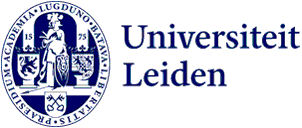
Annaya Taradyla Rangkuty and Femke Verhelst win Political Science bachelor’s thesis prizes 2023
All Political Science graduates have good reasons to be proud of themselves, having successfully completed their studies and having demonstrated considerable personal growth. This October, fifteen bachelor students can be extra proud: their theses were nominated for a thesis prize. In the class of 2023, two students can be über proud: they are the final winners. Congratulations, Annaya Taradyla Rangkuty and Femke Verhelst!
International Relations and Organisations thesis prize
The Leiden and The Hague bachelor programmes in Political Science each have a thesis prize. The (still unnamed) prize for the best thesis in the specialisation International Relations and Organisations (IRO) is awarded anually since 2020. This year, the jury consisted of Billy Tsagkroni and Babak RezaeeDaryakenari. They faced the challenge of picking the best thesis from a shortlist of eleven theses, nominated by the instructors of the so-called IRO bachelor projects.
The jury evaluated these theses based on the excellence of the research question, social relevance, theoretical framework, empirical analysis, and policy implications. After careful deliberation, the jury agreed on one winner.
‘Theoretical innovation, scientific rigor, clear writing, nuanced conclusions, and relevance to societal issues’
The IRO thesis prize of the 2022-2023 academic year goes to Annaya Taradyla Rangkuty. Her thesis, Freedom for all living things, human and nonhuman: Amplifying extant cultural values, beliefs, and myths as a framing strategy for eco-terrorist movements, according to the jury, stands out for its ‘theoretical innovation, scientific rigor, clear writing, nuanced conclusions, and relevance to societal issues.’
Annaya explores how people’s views of social movements affect how these movements communicate their ideas. She uses communication theories to explain why social movements with radical beliefs often use familiar ideas in their messages. She conducted a careful study comparing two social movements in the United States, the Animal Liberation Front (ALF) and the Earth Liberation Front (ELF), to show how these theoretical arguments hold empirically. Her careful qualitative research methods establish interesting empirical findings to support her hypotheses. The committee specifically appreciates the ‘social implications of this study and its findings for social movements’.
The thesis was supervised by Corinna Jentzsch, and the second reader was Christoph Niessen, both of the Institute of Political Science.
Van den Berg Prize (Politicologie and Internationale Politiek)
Students in the bachelor programme Politicologie and the specialisation Internationale Politiek are, if nominated by their thesis supervisors, eligible for the Van den Berg Prize.
The jury for this edition (the first Van den Berg Prize was awarded in 2010) consisted of student representative (and chair) Robin Buijs, Joop van den Berg, and instructors Maria Spirova and Frank de Zwart. They faced the difficult task of picking a winner from the four shortlisted theses, ‘all of a high standard’.
One thesis, however, stood out for its scientific and societal relevance: The effectiveness of EU sanctions: investigating the key drivers and conditions to reach the desired policy goals, written by Femke Verhelst and supervised by Karolina Pomorska.
‘Crystal clear research design’ and ‘taking the reader by the hand’
Femke’s thesis tackles the question under which circumstances European Union sanctions are most effective. She thoroughly examines this question using hypotheses derived from three different International Relations theories: realism, liberalism and constructivism. It appears that sanctions with high costs are less effective than sanctions with low costs. Fruthermore, sanctions have less effect on countries with large military capacities.
The jury is impressed with Femke’s ‘crystal clear research design’ and the ‘precise wording and testing of hypotheses’. The thesis is ‘well-constructed’ and ‘takes the reader by the hand’. Last, but not least, Femke’s findings are relevant for the evaluation of actual European Union sanction policies. ‘Good work!’, says the jury report.
